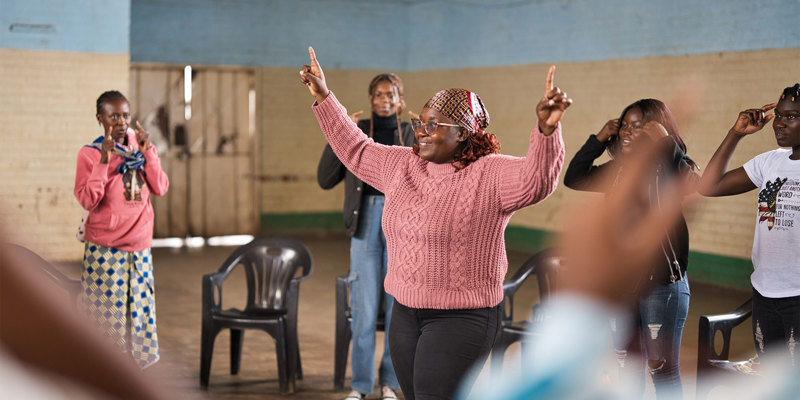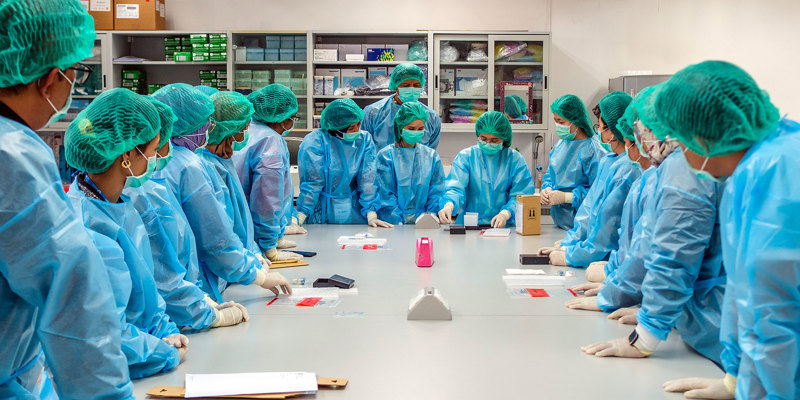UK Doubles Support for the Global Fund in 2006 and 2007
03 August 2005
Geneva, Switzerland The Global Fund applauds the announcement made by the UK's Department for International Development (DfID) to increase the United Kingdom contribution to £100 million pounds (US$ 177 million) per year in 2006 and 2007, doubling its earlier pledge of £51 million pounds for each of these years.
"We warmly welcome the news of the UK's increased pledge," said Dr. Richard Feachem, Executive Director of The Global Fund. "It confirms the UK's strong commitment to development and to reduce poverty. The UK's increased contribution will save hundreds of thousands of lives and enable health systems in developing nations to better cope with the onslaught of infectious diseases."
The United Kingdom has contributed US$ 268 million to the Global Fund to date, and has played an essential role in its support of the Fund since its creation in 2002.
"The UK is a leader in the fight against infectious diseases and a leading supporter and partner of the Global Fund," added Dr Feachem. "Under UK leadership, the recent G8 Summit in Gleneagles, Scotland, this year committed to achieving universal access to antiretroviral treatment for AIDS by 2010. This is a bold and inspiring goal which can only be achieved through the full and sustainable financing of the Global Fund."
Announcing the increased pledge last Friday, UK Secretary of State for International Development, Hillary Benn, stated, "The UK is committed to the fight against AIDS. The Global Fund needs more money, and we hope other donors will also significantly increase their contributions."
Overall, estimated resource needs for the Global Fund over the coming two years total US$ 7.1 billion, with US$ 2.9 billion required in 2006, and US$ 4.2 billion needed for 2007.
The Global Fund has this year introduced a formal round of voluntary replenishment for a two year period to provide more predictability in the funding process. The third meeting in the initial cycle of the replenishment will be hosted by the UK government in London from the 5th to the 7th of September 2005. The previous meetings were hosted by the governments of Sweden and Italy earlier in 2005.
US Pledge for Fiscal Year 2005 Matched
In addition to increasing their pledge for 2006 and 2007, the UK was one of several donor governments which fulfilled their pledges for 2005 in recent weeks in order to maximize the US pledge of US$ 435 million. As required by US law, the amount pledged to the Global Fund cannot exceed 33 percent of all contributions. Under this legislation, it is the amount held in the Global Fund trustee account at 31st July (whether in the form of cash or as promissory notes) which serves to determine the final amount of the US contribution.
As of July 31, contributions from all non-U.S. government donors amounted to a total of US$ 1,043 million, an excess of US$ 160 million beyond the amount needed to allow the full release of the US pledge.
Following the overwhelming response to the Global Fund's Fifth Call for Proposals earlier this year, the Global Fund estimates resource needs of at least US$ 1 billion for this new round of grants, in addition to the US$ 1.3 billion needed for renewal of grants from rounds 1, 2 and 3 — a total of US$ 2.3 billion needed for 2005. To date, the Global Fund is anticipating a shortfall of resources for 2005 of US$ 700 million in addition to its funding requirements for 2006 and 2007.
The Global Fund has so far committed US$ 3.7 billion to over 300 programs in 127 countries. Around 60 percent of this funding has gone to Africa, and 55 percent to fighting HIV/AIDS. Around half of the funding is being spent on medicines, mosquito nets to prevent malaria and other products, while the other half is for strengthening health services. While the average age of Global Fund grants is around 15 months, already substantial results have been achieved, with 220,000 people having been supported with treatment for HIV/AIDS, 600,000 people having received TB treatment and more than three million families having received insecticide treated bed nets to prevent malaria.







